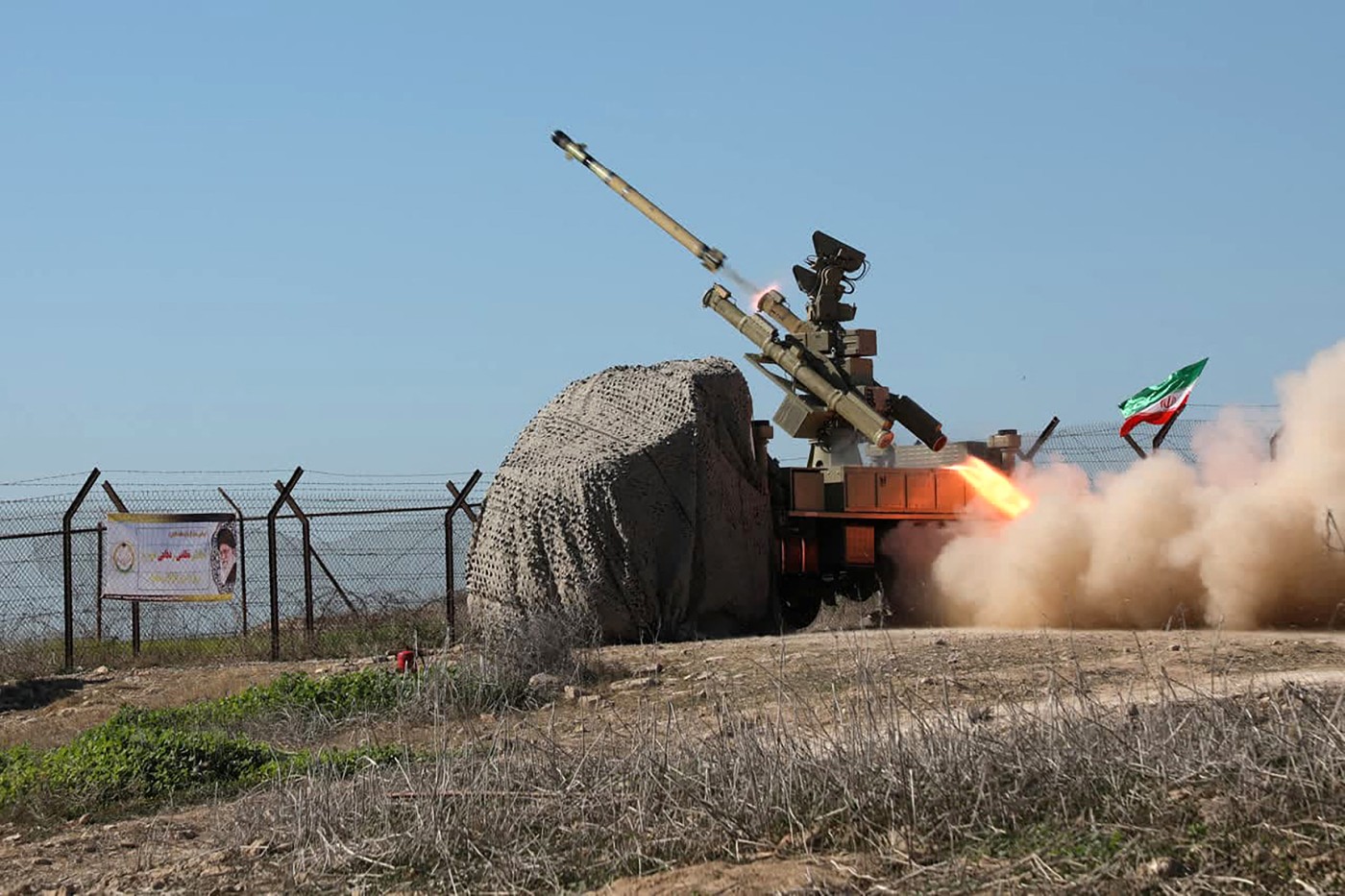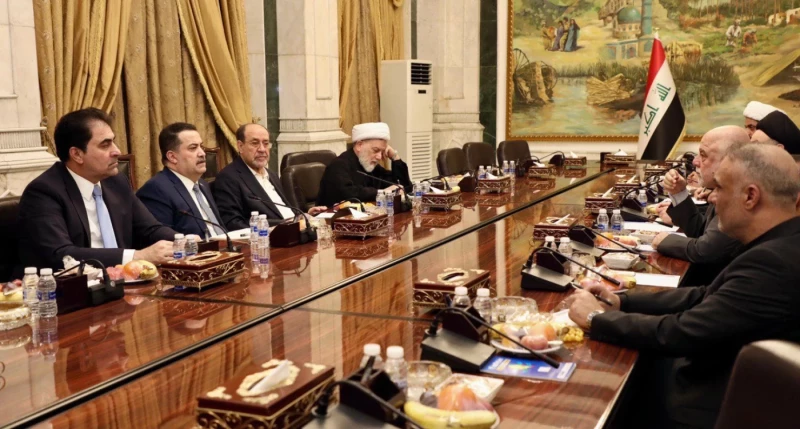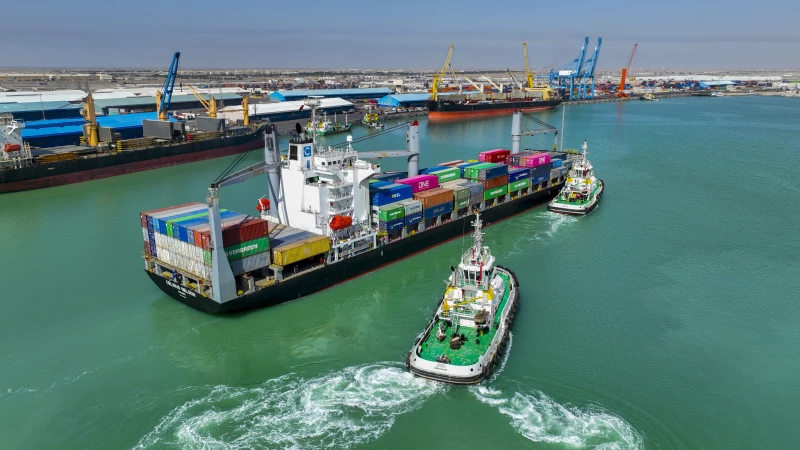ERBIL, Kurdistan Region of Iraq - The deadly missile attacks on the Kurdistan Region capital Erbil that killed four civilians and injured several others have heightened tensions between the U.S. and Iran amid the ongoing war in Gaza and raised concerns about the stability of the region. The Iranians, who claimed responsibility for the attacks, say they were targeting an Israeli spy headquarters. Iran’s Defense Minister Amir Ashtiani insists his country reserves the right to use missiles when needed. Yet across Iraq there are intensified calls to reevaluate both the presence of coalition forces and Iran’s repeated transgressions of good neighborly principles.
Immediately following the attacks, Iraqi Prime Minister Mohammed Shia al-Sudani met with NATO Secretary General Jens Stoltenberg on the sidelines of the World Economic Forum in Davos to discuss the prospects for the withdrawal of U.S. and coalition forces from Iraq. At this juncture, it is imperative to assess the implications of an imminent withdrawal both for the Kurdistan Regional Government (KRG) and Iraq. It is also critical to examine the broader geopolitical context.
Iraqi PM Mohammed Shia al-Sudani discussed the ending of the international coalition’s presence in Iraq with NATO Secretary General Jens Stoltenberg on the sidelines of the World Economic Forum.#TheNewRegion #Iraq #Davos2024 #WEF24 pic.twitter.com/YBQt07ydc5
— The New Region (@thenewregion) January 17, 2024
The motives behind the IRGC’s deadly attack on civilians in Erbil are multifaceted, but primarily center on Tehran’s discontent over continued U.S. military presence in Iraq and Washington’s influence over the Kurdish region. As Foad Izadi, Associate Professor of World Studies at the University of Tehran, puts it: “The withdrawal of the US forces from Iraq would be something that Iran welcomes. The aim is to reduce the US influence in Iraq as much as possible.”
“Indeed We, from the criminals, will take retribution.”#IRGC media tweets shortly after the attacks on #Erbil.#TheNewRegion #Iraq pic.twitter.com/w8YwXVAdk3
— The New Region (@thenewregion) January 15, 2024
However, in a thread posted on X by Germany-based Iran expert Ali Fathollah-Nejad, these attacks are, “contrary to media coverage & expert opinions, primarily a diversionary maneuver by the Islamic Republic motivated by domestic & regional concerns to provoke a direct external threat in the form of direct (small-scale) attacks on #Iran, in the (vain) hope of a rally-around-the-flag effect toward regime stabilization.”
#Iran's missile attacks on #Iraq (#ErbilAttack), #Syria (#Idlib) & #Pakistan: A lot of smoke & mirrors🔎
— Ali Fathollah-Nejad, PhD (@AFathollahNejad) January 17, 2024
Contrary to some media coverage & expert opinions, the #IranAttack are primarily a diversionary maneuver by the Islamic Republic motivated by domestic & regional concerns
He argues: “Domestically, the regime is worried about the March double elections & the (rightfully) feared repetition of a historically low voter turnout. In regional geopolitics, #Iran wants to demonstrate strength through these attacks, esp. to the regime's supporter base & the Tehran-led "Axis of Resistance", considering the dissatisfaction in view of the support for #Hamas against #Israel, which has fallen short of expectations.”
For Entifadh Qanbar, Founder and President of Kurdish Protection Action Committee (KPAC) and former Spokesman of the Deputy Prime Minister of Iraq, the prospective withdrawal of U.S. forces from Iraq poses a significant security concern for the KRG.
“The U.S. troops are in Iraq in small numbers and there are no U.S. bases in Iraq as Iran or as the Iranian militias proxies are saying,” Qanbar told The New Region. “The Iraqi government has invited these troops to stay and they have the purpose to train the Iraqi army and fight ISIS… [and] most importantly the side benefit is to balance to some degree the Iranian hegemony in the region, specifically in Iraq.”
The absence of a stabilizing force could create a security vacuum. It would mean, according to Qanbar, “a 1000% Iranian control”, allowing militia groups like the Iran-backed Popular Mobilization Units (PMU) to intensify their activities, thereby threatening the stability of Erbil and the broader Kurdish region.
While KRG Prime Minister Masrour Barzani has emphasized that the “Kurdistan Region has no animosity towards any of its neighbors, especially Iran”, the IRGC attacks on Erbil underscore the broader regional dynamics involving Iran. Iran may perceive the withdrawal of U.S. forces as an opportunity to increase its influence in Iraq.
KRG PM @masrourbarzani emphasizes the region’s goodwill towards neighbors.#TheNewRegion #Kurdistan pic.twitter.com/Y6EN76iaGc
— The New Region (@thenewregion) January 16, 2024
As Foad Izadi asserts, “this would be an opportunity to increase Iran’s influence in Iraq and decrease US influence in Iraq”.
Of course, this could lead to more significant interference in Kurdish affairs and exacerbate tensions between Tehran and Erbil. Izadi maintains that “Iran tried to work with KRG, but unfortunately, KRG is more under the influence of the U.S. than the central government of Iraq”.
Still, KRG remains a very important partner for the U.S. in Iraq. As Qanbar points out, there is a “huge logistical cooperation” between KRG Peshmerga forces and the U.S. troops, who are “constantly attacked by Iranian militia proxies”. “So what the Kurds are doing is further keep these troops and protect them and coordinate with them at every level in the war against terrorism,” he explains.
Should the U.S. troops be asked to leave Iraq, Qanbar believes “that the U.S. has got a good opportunity to make a separate deal with Kurdistan and enforce Kurdish positions - especially on anti-terrorism to protect Kurdistan from Iranian attacks.” Furthermore, he says, “it would be a big loss not only for the United States but a big loss for Iraq and the fight against terrorism”.
Critics would argue, however, that if the U.S. is asked by the Iraqi parliament to withdraw, it would be a violation of Iraq’s sovereignty for those troops to then move to the Kurdish north, as in this instance, the presence could be seen as constituting an “occupation”.
Giorgio Cafiero, adjunct fellow at the American Security Project and CEO of Gulf State Analytics, argues that a US troop withdrawal is “unlikely”. “It is unlikely that US troops will be leaving Iraq any time soon. There are significant elements within the Iraqi government which want the US military to maintain its presence in Iraq, at least for several more years,” he told The New Region. “Sudani has to strike a balancing act given that he must also cater to Iran-aligned and Iran-sponsored actors in Iraq, as well as rising anti-American sentiments at home against the backdrop of Israel’s genocidal war on Gaza.”
The IRGC attacks in Erbil and the potential withdrawal of U.S. forces from Iraq raise serious concerns for the Kurdistan Regional Government. As the situation unfolds, it is crucial for international actors, regional stakeholders, and the Iraqi government to collaborate on strategies that ensure the security, stability, and continued development of the KRG. A comprehensive approach is necessary to address the immediate security threats and the long-term implications of the evolving geopolitical landscape in the region.



 Facebook
Facebook
 LinkedIn
LinkedIn
 Telegram
Telegram
 X
X


